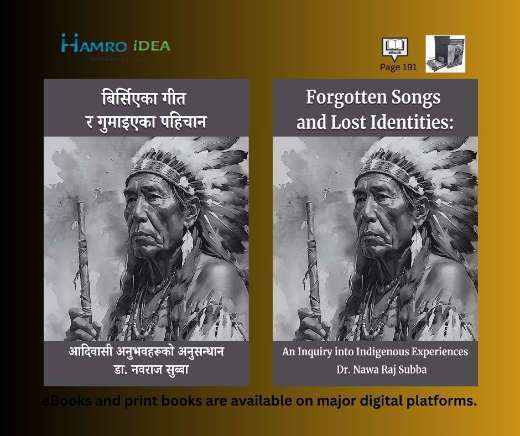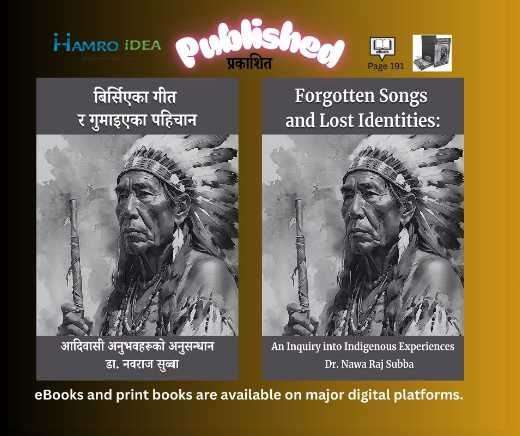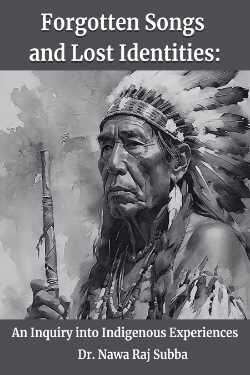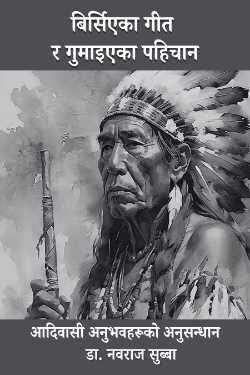Forgotten songs and Lost identities
Forgotten Songs and Lost Identities: An Inquiry into Indigenous Experiences

Forgotten Songs and Lost Identities: Why This Book Matters
History is not only in books. It reads us. History shapes us. It also reminds us who we are.
In Nepal, this truth is clear. Countless languages, cultures, and lifestyles built our society. Yet many traditions are fading.
Indigenous songs and rituals have disappeared. Some mixed with other religions. Others remain only in fragments.
It is this silence that the book Forgotten Songs and Lost Identities explores.
What the Book Explores
The book is based on decades of research. It uses oral stories, field visits, old relics, and community voices.
Through this, it argues that state-written history is incomplete. To know our roots, we must listen to buried voices.
Power and Identity
History often written by rulers. Power shaped which stories survived. As a result, many traditions misrepresented or erased.
Kirat gods linked to Shiva, Buddhism, or Christianity. Local holy names changed. Identities weakened. Self-esteem suffered.
When identity lost, memory and future power also fade.
Three Parts of the Book
First, the book explores Bon religion and Kirat tradition. This shows Nepal’s roots are older than Aryan culture.
Second, it studies transformation and resistance. Communities resisted suppression from the Lichchavi period to Gorkha unification.
Third, it looks at colonial-free thinking. Today, many indigenous groups are reclaiming their names and redefining identity.
Why It Matters
The book is not only about facts. It captures emotions and wounds carried by indigenous communities.
The forgotten songs echo pain but also strength. The lost identities still fight to be remembered.
Therefore, Forgotten Songs and Lost Identities is both history and a call to action. It asks us to listen again.



